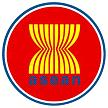 WASHINGTON D.C., 19 May 2015 – ASEAN and the United States of America reiterated their commitment to deepen cooperation under the framework of the ASEAN-U.S. Enhanced Partnership and to bring the relationship to a new height. This was the proposition of the 28th ASEAN-U.S. Dialogue that was successfully convened at the U.S. Department of State in Washington, D.C. on 15 May.
WASHINGTON D.C., 19 May 2015 – ASEAN and the United States of America reiterated their commitment to deepen cooperation under the framework of the ASEAN-U.S. Enhanced Partnership and to bring the relationship to a new height. This was the proposition of the 28th ASEAN-U.S. Dialogue that was successfully convened at the U.S. Department of State in Washington, D.C. on 15 May.
In his opening remarks, U.S. Deputy Secretary of State Antony J Blinken reaffirmed U.S.’ strong and unwavering commitment to Southeast Asia through the region’s most “important and dynamic” institution – ASEAN. As peace and stability remain the first and foremost condition for the region’s continued growth, the U.S. committed to continue working with ASEAN to address regional security challenges, build capacity to enhance ASEAN’s economic competitiveness, and strengthen the socio-cultural and people-to-people ties.
The two sides had candid and extensive discussions on the regional political and security landscape. Acknowledging the strategic challenges facing the region, both sides shared their vision of promoting a rules-based and norms-based regional architecture and patterns of behavior that are conducive for regional peace and stability. ASEAN welcomed the constructive engagement of the U.S. and other major powers in the region, as well as their valuable contributions to ASEAN Community building efforts.
The U.S. expressed its strong support for ASEAN unity and centrality and pledged its active participation in ASEAN-led mechanisms such as the ASEAN Regional Forum, the ASEAN Defence Ministers’ Meeting Plus, the East Asia Summit, and the Expanded Maritime Forum, to strengthen collaboration in addressing regional security challenges. These include, among others, maritime security and marine environment protection, cyber security, transnational crime and international terrorism, extremism and radicalisation, trafficking in persons, climate change and disaster management.
The dialogue took note of the serious concerns over the on-going developments in the South China Sea and its long-term implications for the regional strategic balance. Stressing the importance of peace, security, freedom of navigation and overflight in the South China Sea, both sides concurred that efforts must be expedited to ensure the full and effective implementation of the Declaration on the Conduct of Parties, especially in exercising self-restraint and avoiding actions or behaviors that might escalate tensions or further complicate the situation. They voiced their support for the peaceful resolution of all disputes in the South China Sea without the use or threat to use of force, in accordance with universally recognised principles of international law, including UNCLOS. They also encouraged the parties concerned to work expeditiously towards the conclusion of the Code of Conduct in the South China Sea.
Economic cooperation was an important agenda of the dialogue, with the U.S. being a firm supporter of the region’s growth and prosperity. Both sides agreed to push forward the implementation of the Trade and Investment Framework Agreement and the Expanded Economic Engagement (E3) initiative to build a stronger foundation for their economic ties, create more job opportunities in both regions, and further complement ASEAN’s efforts in building the AEC.
In addition, the meeting focused on addressing socio-economic issues and promoting sustainable development that requires a coherent and multi-faceted approach. ASEAN welcomed U.S.’ proposal to further strengthen cooperation in marine environmental protection, biodiversity conservation, climate change and disaster management, and green economy. Both sides ensured their commitments under the ASEAN-U.S. Joint Statement on Climate Change that was adopted by the Leaders at the 2nd ASEAN-US Summit in November last year, to work towards an agreed outcome of the 21st Session of the Conference of Parties of the UN Framework Convention on Climate Change in Paris later this year. They also agreed to build on the successes of the Brunei-US. English Language Enrichment Project, ASEAN-U.S. Fulbright Scholarship Programme, Young Southeast Asian Leaders’ Initiative, and ASEAN Youth Volunteer Programme, among others, to further promote their people-to-people ties and nurture young leadership in the ASEAN region.
Noting the satisfactory achievements in the implementation of the ASEAN-U.S. Enhanced Partnership Plan of Action (2011-2015), the meeting agreed to accelerate the formulation of the next five-year plan of action that is forward-looking and reflects the new priorities of both sides in the post-2015 period. They also recognised the need to work towards elevating the ASEAN-U.S. Dialogue Partnership to a strategic level.
The participants expressed their deepest condolences to the families of the victims of the Amtrak accident that occurred in Philadelphia on 13 May.
The dialogue was co-chaired by H.E. Aung Lynn, Permanent Secretary of the Ministry of Foreign Affairs of Myanmar, and H.E. Daniel R Russel, U.S. Assistant Secretary of State for East Asian and Pacific Affairs. It was attended by all ASEAN Member States and representatives of the ASEAN Secretariat, led by H.E. Hirubalan V.P., Deputy Secretary-General for ASEAN Political-Security Community.
